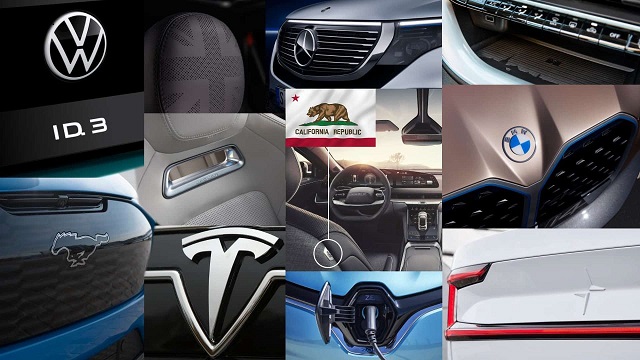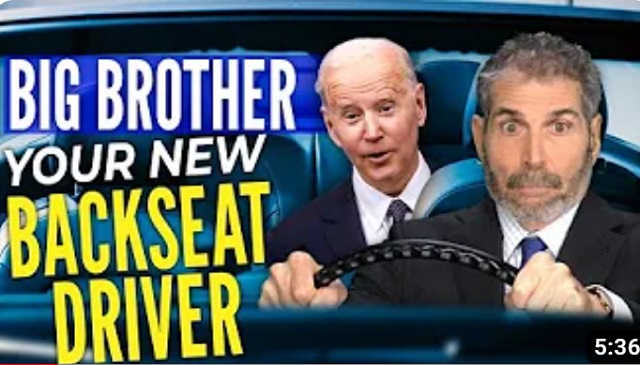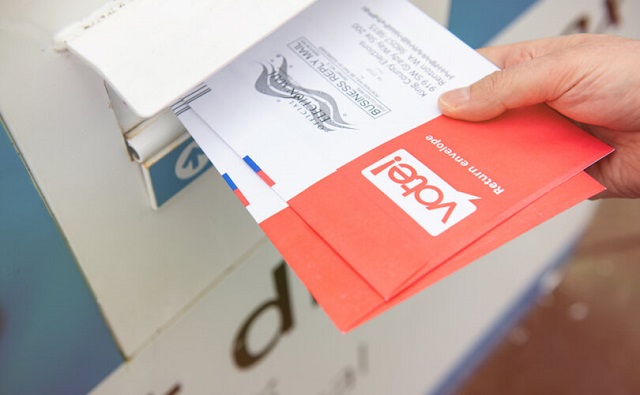Automotive
Automobiles, human nature, and the challenge of building cars that people actually want

From the Frontier Centre for Public Policy
By Terry Etam
Some people out there have an inner itch to do things different. Maybe it’s art, or music, or some other glorious pastime that we as the rest of humanity benefit from, far, far more than we pay. What sort of car these types drive is fascinating; usually something quirky or wonderfully weird; Neil Young spent years before he made it big driving an old hearse, various narcotics taped under the dash.
Others think completely differently, bone-dry aesthetically-speaking; thinkers who just want to make things better. Their inner guiding light is efficiency. I had a genius uncle, a farm boy who made it to high levels in national security in Ottawa through no formal education and sheer ingenuity, who would love describing how he could achieve 70 miles per gallon driving carefully and methodically and under-the-speed-limit around Ottawa in a tiny car, joyously oblivious to Type A heads exploding in his rear-view mirror.
Most people are somewhere in the middle, neither artists nor efficiency maniacs, a space that is quite comfortable for most of humanity. We like nice things, we like how they look, but we also care about practicality. We want to be different from everyone else! But just a bit, or that’s weird. And we all want to drive! Even if it is getting harder and harder for today’s youth to afford it, that drive is still there if finances allow.
This overwhelmingly dominant trait can drive the two extreme camps crazy, a battle that becomes stark and vivid in the automotive industry. Our automotive choices make a statement whether it is intentional or not, and whether we want it or not, because nothing makes a person easier to judge than their automotive preferences.
That’s a reality that people who want to change the world have to accept. It is a very hard thing to swallow, particularly for logicians who can make a near-perfect argument as to why one choice is clearly superior to another, and yet people will look you in the eye and do the opposite. (Long ago when minivans were fully earning their stripes as useful and comfortable transport, about when the perplexing stigma of minivan ownership was setting in, I watched a friend of a friend, standing five-foot-not-much, try and wrestle a mountain bike onto the roof rack of her SUV (yes, yes, I helped), and as she did so she said, “What I really need is a minivan but what would people think of me if I drove one?”)
Minivan vs. SUV was symbolic of the sheer power of how the 80-percent-in-the-middle will shape the landscape, to the extent that personal choice is allowed (hope you’re not scoffing at that, if so, see: federal 2035 all-EV mandate). Because I’m petty and juvenile, it used to fill me with scorn to see people sub-optimize such an expensive purchase on the altar of ‘what other people think of me’.
I’m still petty and juvenile, but have gained enough miles under my wheels to know that things aren’t so simple, and even if they are, it is hardly any of my business what people choose or why. Some care about resale value. Some like an available colour. Some like the feel of the steering wheel or comfort of the seats or the look of the front grille. So what.
It’s not easy for automakers either, because it’s not just that people will actually make auto purchase decisions based on some ridiculously small feature, but also that the lead time from when consumer preferences head in a new direction can be far less than the time it takes to develop a new vehicle. For example, a significant change in gas prices can lead to a preference, or abhorrence, for small, fuel efficient cars, while manufacturers won’t really be able to fully reflect this for a few years.
That’s what makes the EV ‘transition’ so fascinating. If there is one thing that is glaringly obvious in the whole topic, it is that people absolutely do not purchase ‘what they are supposed to’. You can’t make any sense out of it, because the whims and motivations come from external influences that are unpredictable. If Taylor Swift started driving a black Toyota Corolla sedan all of a sudden, what do you think would happen to black Toyota Corolla sedan sales? Not sales of grey ones though, pah! What am I, crazy? Who’d be caught dead in one of those things?
So now, particularly here in Canada but in many other jurisdictions including California, drivers are being told they will not be allowed to buy any new vehicle that isn’t EV, nor will manufacturers be allowed to sell anything that isn’t an EV.
The manufacturers are playing their part, nervously unveiling EV after EV after EV. They advertise the crap out of them, auto publications dutifully test and review them, and the media breathlessly reports how a model’s sales skyrocket by, say 33 percent, when sales go from 3 to 4 units per month.
The media also jumped all over stories about huge demand backlogs, how some new model about to enter showrooms has thousands and thousands of orders or deposits. In 2021, news widely circulated that “Ford F-150 Lightning pre-orders have been closed after nearly 200k reservations”, or Motor Trend’s “Ford Takes in More Than 44,500 F-150 Lightning Orders in 48 Hours”.
Think about how amazing that order book is. A mass manufacturer like Ford is so swamped with interest that they simply must grandiosely and loudly announce: “Sorry Sir or Madam, we can no longer take your order, our success is just too overwhelming.” Many manufacturers reported similar order-book hysteria.
It turns out that the story was surreal, but not quite as it sounds. Through all of 2022, Ford sold only 15,617 electric pickups. The headlines for 2022 results remain starry eyed and insipid: “Ford Tripled BEV Sales In December, Doubled In 2022”, although that couldn’t hold a candle to the infantile enthrallment saved for late 2023: “Ford F-150 Lightning breaks monthly sales record, doubling in November”.
Sales in November 2023 did indeed ‘double’ compared to the prior November, but in the entire quarter Ford sold only 11,905 units. In the two years after the hail-the-future order book bumper crop, Ford only sold about 40,000 F-150 Lightnings. In two years. Recently Ford announced a halving of 2024 production plans down to about 1,600 units per week, or just under 7,000 per month.
Keep in mind that in 2023 Ford sold over 750,000 F-150 internal combustion pickups in the US, and many of these go to urban dwellers for whom an EV pickup might make total sense – ones that rarely leave the city (EVs are in general far better suited to urban environments where they can scoot home safely to a nice warm private charging station every night).
Which brings us back to consumer behaviour again, that mystifying and surely exasperating trait of humanity that no amount of cajoling and ‘proper thinking’ will break. “Two hundred thousand reservations!” to “Slashing production forecasts!” In half. On a variant of the most popular vehicle in the US.
Tesla continues to dominate EV sales, and many people, when they decide they want an EV, mean they want a Tesla (in the pickup world, Rivian might be the Tesla of EV pickups, time will tell). Major auto manufacturers are having a very difficult time seeing EV sales grow to any level that would approach profitability.
It’s hard not to feel bad for them, if one can or should feel bad for huge corporations. How on earth does one plan for the coming year, when two hundred thousand consumers say yes, I want one of those, but then 80 percent change their mind by the time Ford can actually manufacture them?
But observe; whispering in their manufacturing ears are governments saying not subtly that “Don’t worry, we will be legislating internal combustion out of existence, just build them and they will come…” Said less loudly is the supporting evidence: “because they have no choice.” Well, it worked for a while in the Soviet Union didn’t it?
Making things even more complicated for manufacturers are upcoming elections in the US (this year) and Canada (what feels like an eternity but is really only 1.5 years) that could see either minor or major revisions to EV policy rollouts of the past few years.
But forget all the uncertainty surrounding manufacturers; that all gets trumped (no pun intended) by the human element. Here’s an important realization that we all need to accept: Some stuff just gives us a sense of belonging with others in a way that is critical to mental well being. Some people like to dress in the latest fashion. Some get the most popular hair styling. Some drive a rugged SUV because of what it says about them.
That can make manufacturers pull their hair out, because something illogical might be their biggest hit ever. But on top of that one must now layer the rancid decay of politics. EV sales seem to be falling along political fault lines, which in a way is not surprising: one side of the political spectrum sees climate change as a moral imperative to be dealt with as rapidly as possible, and that element, to the extent it can afford it, is responsible for the highest uptake of EVs (it is another sign that ‘left wing vs. right wing’ is a historical anachronism of little value any more; the traditional ‘left’ represented the working class, the downtrodden, the ones that needed a safety net; today’s main EV purchasers are wealthy enough to pursue Teslas first and foremost, often with a multi-car garage full of options). EV as political statement is yet another example of how our preferences link us to a tribe of our choice, rational or not, and it will be supra-humanly difficult to change that, whether in Canada or the US or Togo.
All one can conclude from this hodgepodge of observations is that the auto market will continue to reflect certain aspects of human nature that we may not even be aware of ourselves, and also reflect physical, financial and security realities/rationales that will not be changed by government edict. I have no idea what that means in terms of a transition to EVs, and that trajectory could change with the development of new battery technology, for example. But at present, it should be clear, based on examples like the Ford F-150 Lightning EV experience, that human enthusiasm and professed care does not necessarily translate well into the cold hard reality of what people put their money down on.
It is a nuanced world. People are imperfect and beautifully so, it adds colour to the world. Either the landscape is more or less free, where people express themselves as they wish, or it is a closed quasi- or full-dictatorship where that is not permitted (see: censorship, over-reaching legislation, thought police/moralistic systemic governmental intervention, personal carbon budgets, etc.). The latter never succeeds because it fights human nature, and the former has elements that make no sense outside one’s own circle of people that get it. I choose not to be part of some tribes, but I probably choose to be part of others, and likely do so subconsciously, which makes the whole thing even trickier.
Current politicians and WEF-types believe they have a blueprint for humanity to unroll. It is an absurdity, if for no other reason than they can’t comprehend the complex realities of 8 billion people whom they are trying to force in a certain direction. They are trying to force them all into metaphorical minivans, because minivans make more sense than anything else. They will fail.
Terry Etam is a columnist with the BOE Report, a leading energy industry newsletter based in Calgary. He is the author of The End of Fossil Fuel Insanity. You can watch his Policy on the Frontier session from May 5, 2022 here.
Automotive
The EV ‘Bloodbath’ Arrives Early

 From the Daily Caller News Foundation
From the Daily Caller News Foundation
By David Blackmon
Ever since March 16, when presidential candidate Donald Trump created a controversy by predicting President Joe Biden’s efforts to force Americans to convert their lives to electric-vehicle (EV) lifestyles would end in a “bloodbath” for the U.S. auto industry, the industry’s own disastrous results have consistently proven him accurate.
The latest example came this week when Ford Motor Company reported that it had somehow managed to lose $132,000 per unit sold during Q1 2024 in its Model e EV division. The disastrous first quarter results follow the equally disastrous results for 2023, when the company said it lost $4.7 billion in Model e for the full 12-month period.
While the company has remained profitable overall thanks to strong demand for its legacy internal combustion SUV, pickup, and heavy vehicle models, the string of major losses in its EV line led the company to announce a shift in strategic vision in early April. Ford CEO Jim Farley said then that the company would delay the introduction of additional planned all-electric models and scale back production of current models like the F-150 Lightning pickup while refocusing efforts on introducing new hybrid models across its business line.
General Motors reported it had good overall Q1 results, but they were based on strong sales of its gas-powered SUV and truck models, not its EVs. GM is so gun-shy about reporting EV-specific results that it doesn’t break them out in its quarterly reports, so there is no way of knowing what the real bottom line amounts to from that part of the business. This is possibly a practice Ford should consider adopting.
After reporting its own disappointing Q1 results in which adjusted earnings collapsed by 48% and deliveries dropped by 20% from the previous quarter, Tesla announced it is laying off 10 percent of its global workforce, including 2,688 employees at its Austin plant, where its vaunted Cybertruck is manufactured. Since its introduction in November, the Cybertruck has been beset by buyer complaints ranging from breakdowns within minutes after taking delivery, to its $3,000 camping tent feature failing to deploy, to an incident in which one buyer complained his vehicle shut down for 5 hours after he failed to put the truck in “carwash mode” before running it through a local car wash.
Meanwhile, international auto rental company Hertz is now fire selling its own fleet of Teslas and other EV models in its efforts to salvage a little final value from what is turning out to be a disastrous EV gamble. In a giant fit of green virtue-signaling, the company invested whole hog into the Biden subsidy program in 2021 with a mass purchase of as many as 100,000 Teslas and 50,000 Polestar models, only to find that customer demand for renting electric cars was as tepid as demand to buy them outright. For its troubles, Hertz reported it had lost $392 million during Q1, attributing $195 million of the loss to its EV struggles. Hertz’s share price plummeted by about 20% on April 25, and was down by 55% for the year.
If all this financial carnage does not yet constitute a “bloodbath” for the U.S. EV sector, it is difficult to imagine what would. But wait: It really isn’t all that hard to imagine at all, is it? When he used that term back in March, Trump was referring not just to the ruinous Biden subsidy program, but also to plans by China to establish an EV-manufacturing beachhead in Mexico, from which it would be able to flood the U.S. market with its cheap but high-quality electric models. That would definitely cause an already disastrous domestic EV market to get even worse, wouldn’t it?
The bottom line here is that it is becoming obvious even to ardent EV fans that US consumer demand for EVs has reached a peak long before the industry and government expected it would.
It’s a bit of a perfect storm, one that rent-seeking company executives and obliging policymakers brought upon themselves. Given that this outcome was highly predictable, with so many warning that it was in fact inevitable, a reckoning from investors and corporate boards and voters will soon come due. It could become a bloodbath of its own, and perhaps it should.
David Blackmon is an energy writer and consultant based in Texas. He spent 40 years in the oil and gas business, where he specialized in public policy and communications.
Automotive
Biden’s Kill Switch: The Growing Threat of Government Control of Your Car

From StosselTV
The government may soon be able to shut down your car. Biden’s $1.2 trillion infrastructure bill includes a kill switch for new cars.
In an effort to reduce drunk driving, government wants devices in cars that will monitor and limit impaired driving. But there’s a big problem: these devices give government control over your car.
Automotive engineer and former vintage race car driver Lauren Fix points out the dangers in my video.
After 40+ years of reporting, I now understand the importance of limited government and personal freedom.
——————————————
Libertarian journalist John Stossel created Stossel TV to explain liberty and free markets to young people.
Prior to Stossel TV he hosted a show on Fox Business and co-anchored ABC’s primetime newsmagazine show, 20/20.
Stossel’s economic programs have been adapted into teaching kits by a non-profit organization, “Stossel in the Classroom.” High school teachers in American public schools now use the videos to help educate their students on economics and economic freedom. They are seen by more than 12 million students every year.
Stossel has received 19 Emmy Awards and has been honored five times for excellence in consumer reporting by the National Press Club. Other honors include the George Polk Award for Outstanding Local Reporting and the George Foster Peabody Award.
————
To get our new weekly video from Stossel TV, sign up here: https://www.johnstossel.com/#subscribe ————
-

 espionage2 days ago
espionage2 days agoOne in five mail-in voters admitted to committing voter fraud during 2020 election: Rasmussen poll
-

 Business2 days ago
Business2 days agoHonda deal latest episode of corporate welfare in Ontario
-

 Automotive1 day ago
Automotive1 day agoThe EV ‘Bloodbath’ Arrives Early
-

 Brownstone Institute20 hours ago
Brownstone Institute20 hours agoThe Numbers Favour Our Side
-

 Frontier Centre for Public Policy16 hours ago
Frontier Centre for Public Policy16 hours agoHow much do today’s immigrants help Canada?
-

 CBDC Central Bank Digital Currency21 hours ago
CBDC Central Bank Digital Currency21 hours agoA Fed-Controlled Digital Dollar Could Mean The End Of Freedom








